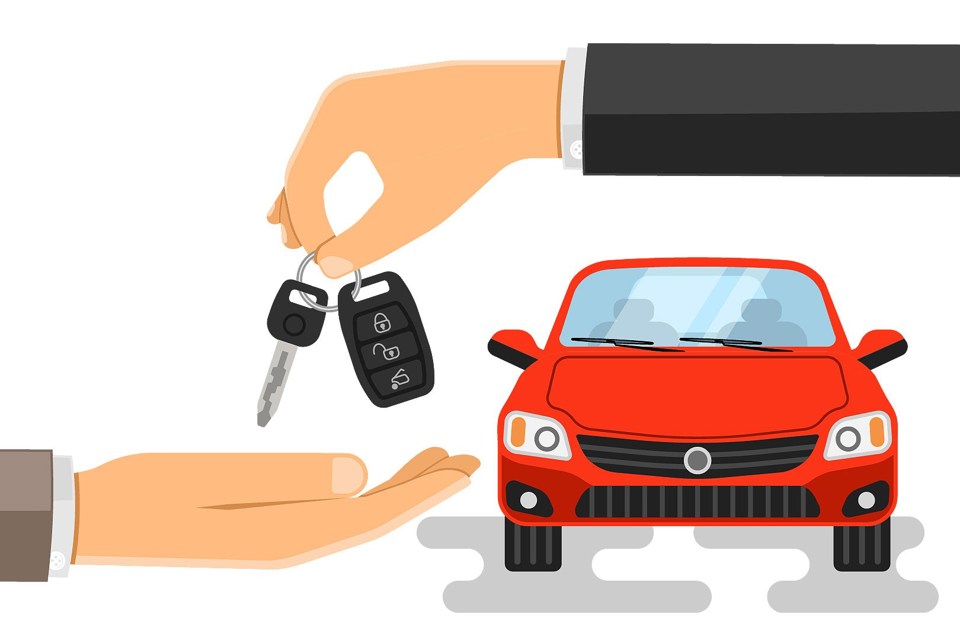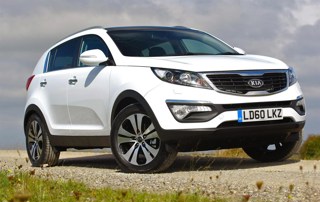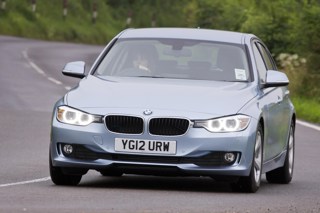If you’re a franchised car dealer, new car sales are a key pillar of your business. Yes, servicing may be lucrative, and there’s money to be earned from flogging the second-hand motors on the forecourt, but even the profitability of those activities is inextricably linked to the number of shiny new cars you can shift.
Fortunately, dealers seem pretty adept at getting new cars out of the showroom and on the road. A record 2.69 million new cars were registered in 2016, and this year’s bumper March saw a massive 562,337 new cars hit the road.
Recently, though, it has been a different story, with demand floundering in a mire of unsettling legislation and political uncertainty. March aside, 2017’s registrations have generally been slightly low compared to last year. In such uncertain times, it makes sense that dealers want to maximise return on every sale.
Tim Bagnall, director of VT Holdings, which owns Wessex Garages, CCR Motor Co and Griffin Mill Garages, said there is always more to be done, and the first step should be to go back to basics.
“In my experience, focus is required firstly in the classic sales funnel,” he said. “Everything starts with activity. Then, once the customer is engaged, it’s down to your own process. Substantial profit comes from manufacturer bonuses, so achievement of targets is critical.”
A quick glance at the figures would appear to show the wisdom of Bagnall’s words. Dealers made record profits in 2015 thanks to the enormous number of cars
registered, and the unprecedented demand seen in March pushed the average dealer’s profit over £114,000 per site for the month – the first-ever six-figure average for a single month.
But if you look closer, a more complex story emerges. According to profitability consultancy and market analysis firm ASE, 2015’s success drove manufacturers to impose high targets on dealers throughout 2016, which meant that despite the uplift in registrations, last year’s average dealer profits were almost £20,000 lower than they were the year before.
Further evidence surfaced recently, when June 2017’s profits were found to be slightly higher than those 12 months earlier, despite registrations falling by almost 5%.
However, though ASE’s chairman Mike Jones admits dealers’ profitability is a complicated concept affected by aspects that are outside their control, he agrees with Bagnall’s assertion that profits can be improved by doing the simple things well.
Dealers, he said, already know the basics, but for some unknown reason they can fail to carry them out.
“The best practice is generally pretty widely known and generally pretty poorly implemented,” he said. “There are a lot of processes that people used to do that just fall away. We ask whether it worked, they say ‘yes’, we ask why they stopped and they don’t actually know.”
Such experiences have led Jones to believe that basic processes, such as following up leads and being proactive about vehicle renewal, should be “rigorously implemented” to give the best chance to make a profit.
So is making more money a simple case of giving your sales staff a few refresher courses, setting good targets and making sure they follow up leads? Or could it be that even if you’ve got your sales processes nailed down, there’s still scope to make more money here and there?
Bagnall thinks so, citing two
“critical drivers” of profitability. The first is car finance, which, as he points out, is a huge market. The Finance and Leasing Association claims that finance deals accounted for 86% of new car sales in 2016, and Bagnall says its popularity offers opportunities for dealers to generate profit both now and in the future.
“PCP sales form the majority of volume franchise financed sales and, due to the cost-effective nature of the product, it’s bringing people into the market who were not there before. It also means there is a distinct activity horizon at the end of the PCP contract – there is no ‘I’ll just leave it for now’ response. Something has to happen, and that is a golden opportunity for dealers,” he said.
But Bagnall also acknowledges such schemes aren’t without their foibles. PCP and lease contracts, he said, have brought about shorter ownership cycles, which are affecting residual values. Not only does that impact a dealer’s used car business, but it also makes selling the next finance package harder.
“Residuals are coming under pressure,” he said. “Renewal pricing for PCP in certain areas is rising so the ability to swap people out of existing contracts at minimal expense is becoming more difficult.”
Make the most of add-ons
Bagnall’s second ‘driver’ is the upselling of add-on products, which he said are key in improving profits, particularly for dealers who see their profit margins squeezed by unrealistic dealer targets.
“Add-on products are critical,” he said. “Chassis margin can come under pressure in competitive situations and when targets are being chased down, so add-on products can increase the profit on the transaction materially.”
It may not always be a popular form of revenue generation, but the figures suggest correctly marketing extras such as service plans, tyre insurance and even accessories can make the difference between profit and loss.
For example, Jewelultra’s Diamondbrite paint protection cost dealers between £30 and £90 depending on the package, while retail prices range from around £200 to £500. It goes without saying that some of that profit may be lost through variables such as commission and the cost of applying the product, but selling a top-end paint protection kit could still earn a dealer a three-figure sum.
It may not sound like much, but bear in mind that just a few months ago, in April 2017, the average car dealer made just £600 in profit. In other words, a few Diamondbrite kits either way could have either put that mythical ‘average’ dealer in the red, or doubled its money.
Of course, maximising your profit from add-ons is more complex than just selling a few paint protection kits. From long-term plans such as GAP insurance and service packages to ‘traditional’ sales of lifestyle accessories including carpet mats and roof boxes, there is a huge range of extras you can offer.
In isolation, each add-on may only yield a small profit, but put together they could dramatically increase the total earned from a sale.
Bagnall also highlighted the importance of service plans, despite the fact the profit may not immediately be seen or controlled by the sales department. “Service plans are essential retention products for tying the customer into repeat business,” he said. “The main profit angle of these is at the point of return for service, but retention of customers does generate long-term profit both within the vehicle’s life cycle and beyond into renewal. Of course, this is wasted if the aftersales system and process is not good enough.”
With all this potential in add-ons, then, dealers may be tempted to simply bombard customers with the option of various packages, insurances and plans. But Mike Macauley, sales director of dealer warranty and insurance provider AutoProtect, warned that choosing the right number of add-ons for your company and your customers is key.
“When you’re presenting a whole raft of products, you can almost get to the point of customer tedium, but equally if you only have two products, customers might decide they don’t want either of those. It’s a balance.
“You only have to offer the products you want to offer. There’s nothing in the FCA rules that says you have to offer every insurance product on the market. We’ve got some dealers who offer all our products and some that might just offer the GAP insurance and the SMART repair insurance.
“It comes down to whether that product is right for the customer, whether it fits in with the dealership sales process, whether it’s appropriate, and whether it generates the right reward for the effort that needs to be done.”
Macauley also said that once you’ve chosen your products, it is important that they are marketed to customers in the right way to maximise uptake and, by association, profits.
“The product has to fit into the dealership sales process so it doesn’t become a case of ‘Oh, by the way, you bought this car, so how about this?’ It’s got to be within the overall sales process for the car. So we train dealers to use something called the ‘400% Rule’, where 100% of the products should be presented to 100% of the customers 100% of the time and with 100% legal compliance.”
Be digitally savvy
However, as useful as add-ons may be, it seems that they will remain just that – add-ons – and new car volume will always be the main driver of dealer profitability.
As Bagnall explained: “From the sale of a new car comes the all-important part exchange vehicle, after sales business and all the profit they generate. Without the initial new car sale none of these profits in other areas of the business would be realised.”
Getting your name, your brand and your products out there, then, is key, but the way in which dealers achieve this is changing.
We live in a more tech-savvy world than ever before and the internet is shaping both the industry and the way in which dealers have to conduct business.
“Your online presence is massively important,” said Jones. “Customers use the internet to narrow down their choices.
“A lot of people will sit down on the sofa in the evening and dual-screen. You need to change the working hours so your response teams are there in the evenings to respond to the enquiries that customers are making.
“We are an increasingly impatient society when it comes to buying things, so if the customer doesn’t get a response within a reasonable period of time, they’ll move on.”
Bagnall thinks technology is changing the way companies conduct business, too, but he pointed out the advantages of using software for customer management and performance analysis, as well as the marketing advantages of websites such as AutoTrader.
“Technology plays a huge part in the whole sales process,” he said. “In the attraction stage, there’s online advertising either through third parties or your own website. In the retention stage, you can use data capture mechanisms and consequent customer relationship management software. Then in the conversion stage, you can use data mining, optimisers and so on.”
But when making money from car sales involves so many facets, it’s clear improving profit is no longer just a job for the sales manager to take on alone. Jones said: “The sales manager is still key, but it has to be a team effort”.
Getting every member of the team, from cleaners to the managing director, to pull in the same direction might appear daunting, but if you can get it right, the scope for success could well be greater than ever.
Neil McCue, group director, Snows Seat: "You’ve got to be creative"
Now is undoubtedly a good time to be a Seat dealer. A raft of strong products has turned the Spanish brand’s fortunes on their head and Neil McCue, director of the Snows Group, is well aware how fortunate he is to represent the VW subsidiary.
“It has been a challenging few years,” he said. “But at the moment it’s working. This year our business is at record profitability and we’re feeling very confident. There’s a real appetite in Seat UK to do well and with the future models, such as Arona, coming through it looks very, very positive.”
Far from being flushed with success, though, McCue realises there’s still work to do, and it starts with improving new car sales.
“New cars are the future,” he said. “Not only do they make more than used cars from a profit point of view, but they bring in the next people into the brand because we can look after them through their life and they change their car constantly, so our new car sales are vitally important.”
However, he said that chassis margins are now affected largely by the targets imposed by the manufacturer.
“It always comes back to the size of your target. If the target’s achievable and you can price sensibly then you make money. If your target is too high and you’re having to do distress selling, it makes it harder so your margin suffers. Fortunately, Seat works hard with dealers to make sure things are fair.”
In his quest to increase sales and beat the targets the manufacturer sets, McCue sees a “massive” opportunity in online marketing.
“In my position we work very hard with pay-per-click and so on,” he said. “You have to because Seat is a challenger brand. It’s not a Land Rover, where you’re making X amount of pounds – you have to work very hard at it and every penny counts, so you’ve got to be creative in what you do.”
But he warned that straying from brand policy when advertising is a dangerous game.
“There are standards and things you must do, so the days of managers’ specials have gone. You can damage the brand quickly by doing stupid things, and we don’t want to do that.”
McCue also sees add-ons as enormously useful tools in the dealer’s armoury, especially when allied with the consumer’s hunger for finance deals.
“With finance, it’s the complete package. You’re selling the finance, the car, the product all at the same time. It’s not just sell the car, then sell the finance, then sell GAP, then sell tyre insurance – it’s the whole thing.
“When I first started in this industry you would sell the car and it was great news, you’ve done your job. Now it’s about selling the finance and selling the product.
“Every product has a profit stream to it and I think you’ve got to do the whole job rather than just sell the car and simply say, ‘Thank you, Mr Customer’.”
McCue also says FCA rules mean his dealers have to be careful about how they present their add-ons to buyers. The trick, he thinks, is in rewarding sales staff for behaviour, rather than sales figures.
“We have to be very careful that the way we reward our sales staff is not forcing products on customers,” he said. “We don’t target add-ons because that goes against everything the FCA are doing. We pay on behavioural patterns in terms of the way we order them, have they done the right things, etc. It’s very much about behaviour, rather than asking dealers to sell 10 GAPs this month, because 10 customers might not want GAPs and we’d be making them buy it just to hit a target.”
James Fossdyke


















Login to comment
Comments
No comments have been made yet.